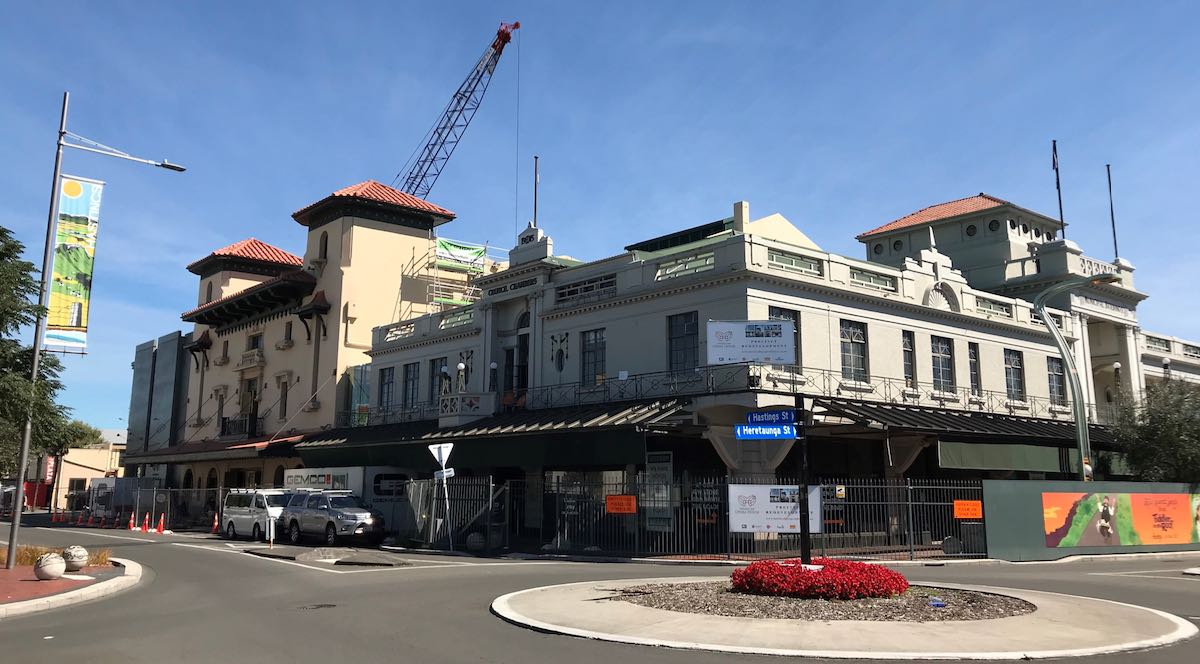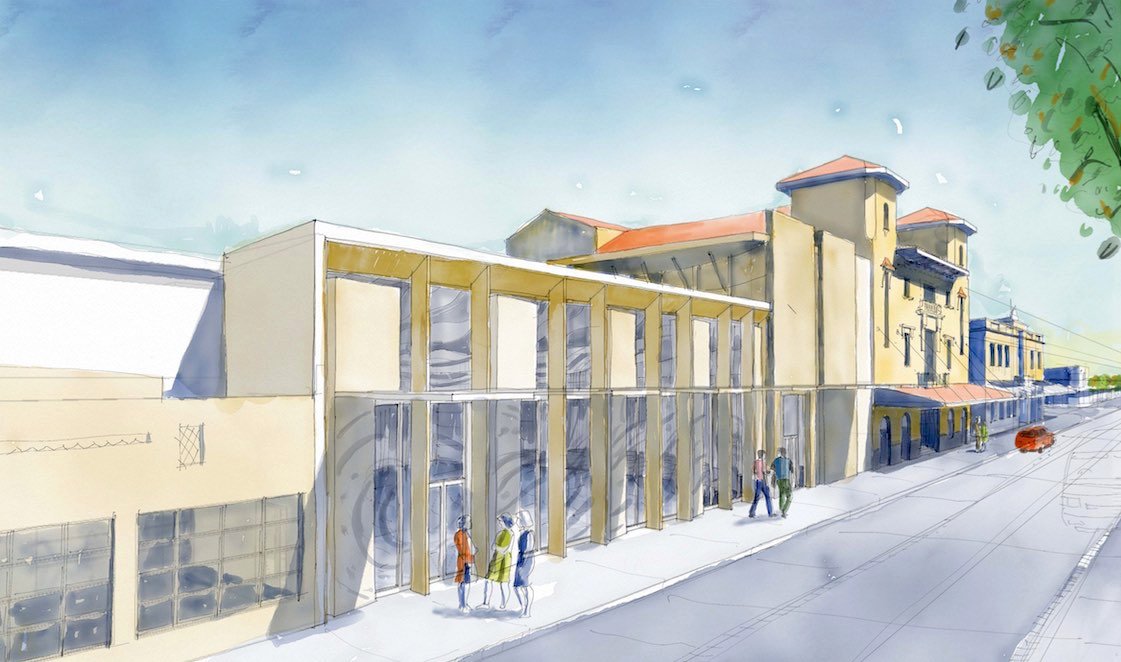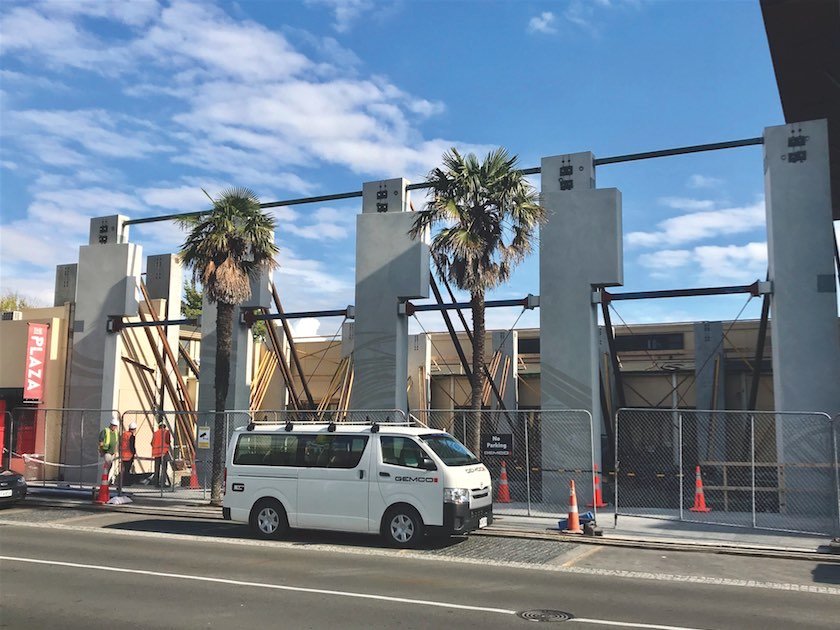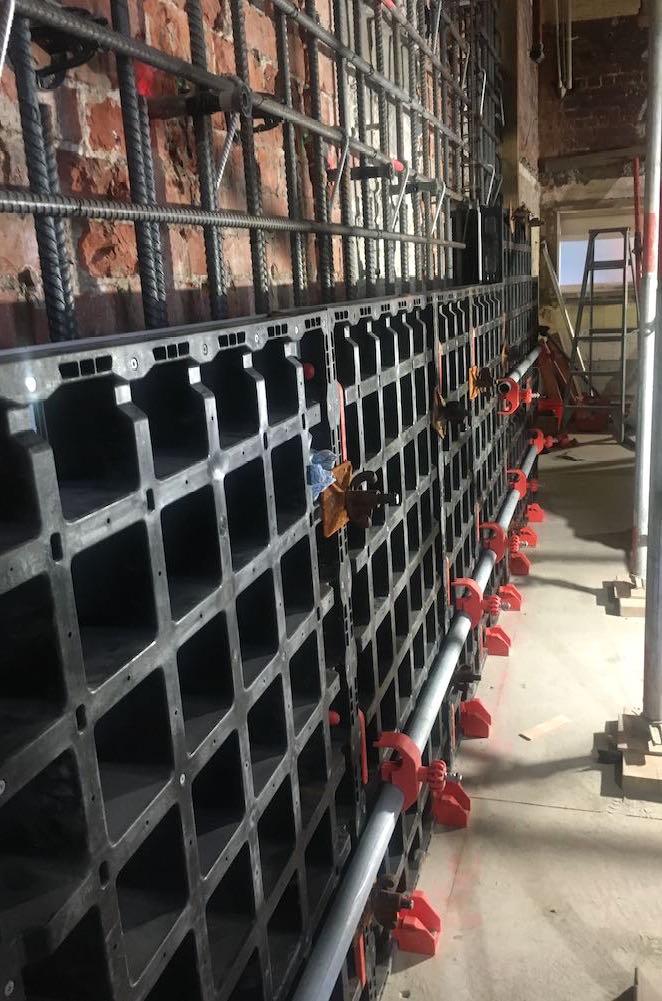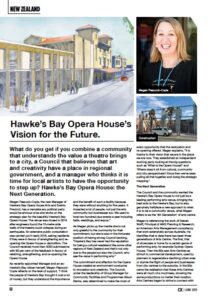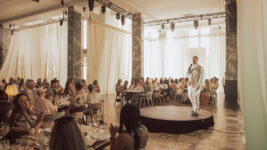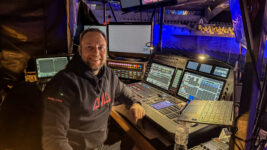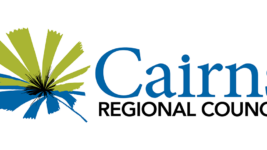News
12 Jun 2019
Hawke’s Bay Opera House’s Vision for the Future
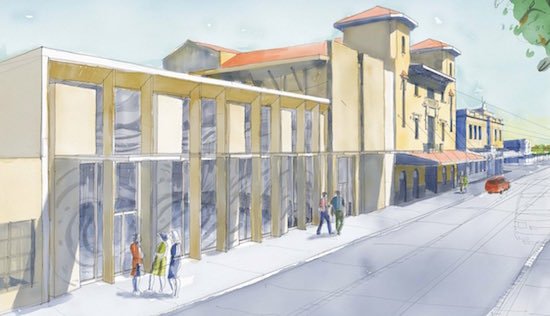
Subscribe to CX E-News
NEW ZEALAND
Hawke’s Bay Opera House’s Vision for the Future
by Jenny Barrett.
What do you get if you combine a community that understands the value a theatre brings to a city, a Council that believes that art and creativity have a place in regional government, and a manager who thinks it is time for local artists to have the opportunity to step up? Hawke’s Bay Opera House: the Next Generation.
Megan Peacock-Coyle, the new Manager of Hawke’s Bay Opera House Arts and Events Precinct, has a mandate any political party would be envious of as she works on the strategic plan for the beautiful Hawke’s Bay Opera House.
The venue was closed in 2014 after engineers found the 12-metre side walls of the theatre could collapse during an earthquake. An extensive public consultation was carried out in early 2016, asking residents if they were in favour of strengthening and re-opening the Opera House or demolition.
The Council received more than 3000 submissions with 80 per cent of the feedback in favour of retaining, strengthening, and re-opening the Opera House.
As recently appointed Manager and an ex-Hawke’s Bay citizen herself, Megan Peacock-Coyle reflects on the level of support, “I think the people of Hawke’s Bay thought it cost a lot of money, but they understood the importance and the benefit of such a facility because they were without anything for five years.
“It impacted a lot of people, not just the arts community but businesses too. We used to host two hundred plus events a year including balls, weddings, and expos.”

Megan Peacock-Coyle – Manager Hawke’s Bay Opera House Arts and Events Precinct. Photo: Brydie Photography
As Megan picks up the mantle she is not only grateful to the community for their commitment, but she is also in the fortunate position of having strong Council backing,
“Hawke’s Bay has never had the reputation for being a cultural wasteland like some other regions of New Zealand and that’s not only due to the people but also the Council, who see the value in performing arts.”
The commitment and affection for the Opera House created an environment conducive to innovation and creativity. The Council, under the leadership of Group Manager for Community Facilities and Programmes Alison Banks, was determined to make the most of every opportunity that the restoration and re-opening offered.
Megan explains, “It is thanks to their vision that we are in the place we are now. They established an independent working party looking at the big questions such as ‘What is the Opera House?’ and ‘Where does it sit from cultural, community and city perspectives? Since then we’ve been pulling all that together and doing the strategic mapping.”
The Next Generation
The Council and the community wanted the Hawke’s Bay Opera House to not just be a leading performing arts venue, bringing the best acts to the Hawke’s Bay, but to also genuinely trailblaze a new approach to what it is to be a community venue, what Megan refers to as the ‘4th Generation’ of arts centre.
Megan is referencing the work of Steven Wolff, Principal of AMS Planning & Research, an American Arts Management consultancy that work extensively across Australia. He identifies that to date there has been three generations of Arts Centre.
The first, that of showcase or home for a certain genre of performing arts, for example Sydney Opera House. Then the 80’s saw Arts Centres as stimuli to commercial development, used by planners to regenerate a declining urban area or stymie the flight of people and businesses from city centres to the suburbs.
In the 90’s came the realisation that these Arts Centres were all much of a muchness, showing the same productions no matter their location. Arts Centres began to strive to connect with their local communities, particularly families and ethnic populations and try to make the Arts more accessible to the people that were footing the bill.
Education programmes, talent searches and summer theatre camps became new entry points to the performing arts. It is Wolff’s ‘Generation 4’ that inspires Megan and the Hawke’s Bay Opera House team.
Wolff describes it as fostering ‘cultural vitality’ and talks about three essential elements: providing opportunities for cultural expression; facilitating participation in the arts; and supporting the arts and cultural activity. Megan explains, “It is not just being a hall for hire, but focusing on a more curatorial role. Yes, we provide what the audience wants to see but we also want to be the cultural heart of the community.”
She talks about three ways in which Hawke’s Bay Opera House is already working towards this goal. Firstly, to ensure that they are providing those opportunities for cultural expression talked about by Wolff, the team have instituted and will maintain authentic stakeholder engagement.
“Since getting the go ahead for re-opening the Opera House, we have established an outward focus and met with the whole arts community.
“We have and will continue to consult with arts organisations – the Hastings City Art Gallery, Arts Inc. Heretaunga – the Trust responsible for the Hawke’s Bay Arts Festival and many artsevents here in Hawke’s Bay, the National Youth Drama School, Kahurangi Dance Company, Project Prima Volta, EIT [the local tertiary institute] and the local iwi, Ngati Kahununu. Jointly, Hastings City Council is also working towards an Arts and Cultural Strategy for the region.”
Megan sees this leadership as being a critical part of the role of a 4th generation venue, encouraging and supporting artists,
“We want to help performers make their own opportunities locally, and as a venue not just rely on touring parties.” To facilitate participation in the arts, the team have committed to providing employment pathways for youth who wish to become involved in the performing arts industry,
“The new Skills Active qualifications and accreditation programme offer our industry and our young people a wonderful opportunity and we will be developing apprenticeships and educational programmes to make the most of them.”
She chuckles and adds, “After all, many of the best techs come from high schools.”
Finally, she wants the Opera House to inspire others – artists, local bodies, even the national government,
“I sit on national industry boards to help raise the profile of our industry at a government level, but things need to be happening regionally to underpin that. We want to bring individual artists together to lobby local government and advocate for our industry. We have to encourage local government to see and understand the value for a city of having an active and creative element to it.”
Megan thinks a part of this is accountability, “It is time we held a mirror up to ourselves and started capturing how much business an event brings to a region, then we can talk about the cultural economy and we can build capability in regional towns and cities and encourage investment in the arts, just like the tourism industry has done.
“Local artists need to be supported to make the work, but they also need to focus on their sustainability. They need to start from the bottom up and work to ensure all voices get heard and part of our role as a venue in our community should be to support them.”
Wolff talks a lot about ‘Generation 4’ Art Centres being thought leaders, and the conviction and passion with which Megan rallies for artists to stand up, be counted and ensure that the New Zealand Arts Sector is acknowledged, leaves you in no doubt that this Arts Centre has that box ticked.
With the consultation stages now over, the Council has recently adopted the vision for the Hawke’s Bay Opera House to be the most vibrant and significant arts’ culture and events facility in New Zealand.
Perhaps not such a big ask for this vibrant community, fired-up management team and proactive Council.
CX Magazine – June 2019 Entertainment technology news and issues for Australia and New Zealand – in print and free online www.cxnetwork.com.au
© CX Media
Subscribe
Published monthly since 1991, our famous AV industry magazine is free for download or pay for print. Subscribers also receive CX News, our free weekly email with the latest industry news and jobs.

